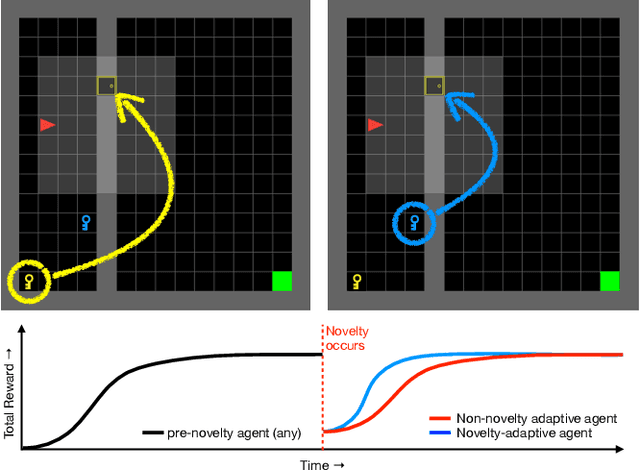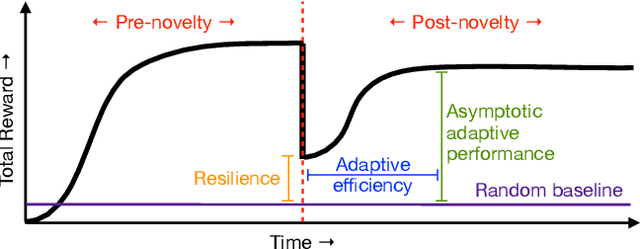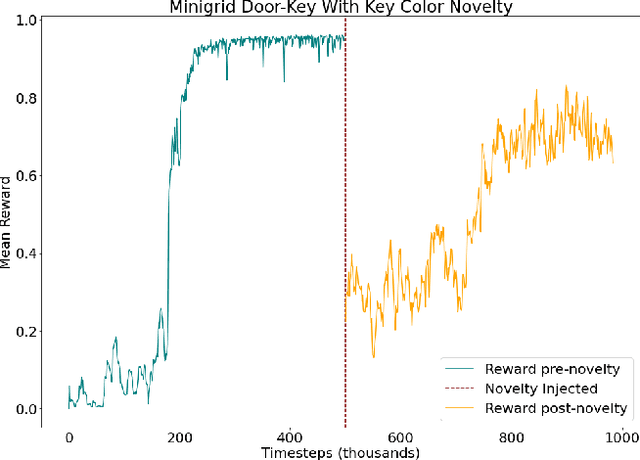Mustafa Hussain
Neuro-Symbolic World Models for Adapting to Open World Novelty
Jan 16, 2023



Abstract:Open-world novelty--a sudden change in the mechanics or properties of an environment--is a common occurrence in the real world. Novelty adaptation is an agent's ability to improve its policy performance post-novelty. Most reinforcement learning (RL) methods assume that the world is a closed, fixed process. Consequentially, RL policies adapt inefficiently to novelties. To address this, we introduce WorldCloner, an end-to-end trainable neuro-symbolic world model for rapid novelty adaptation. WorldCloner learns an efficient symbolic representation of the pre-novelty environment transitions, and uses this transition model to detect novelty and efficiently adapt to novelty in a single-shot fashion. Additionally, WorldCloner augments the policy learning process using imagination-based adaptation, where the world model simulates transitions of the post-novelty environment to help the policy adapt. By blending ''imagined'' transitions with interactions in the post-novelty environment, performance can be recovered with fewer total environment interactions. Using environments designed for studying novelty in sequential decision-making problems, we show that the symbolic world model helps its neural policy adapt more efficiently than model-based and model-based neural-only reinforcement learning methods.
NovGrid: A Flexible Grid World for Evaluating Agent Response to Novelty
Mar 23, 2022



Abstract:A robust body of reinforcement learning techniques have been developed to solve complex sequential decision making problems. However, these methods assume that train and evaluation tasks come from similarly or identically distributed environments. This assumption does not hold in real life where small novel changes to the environment can make a previously learned policy fail or introduce simpler solutions that might never be found. To that end we explore the concept of {\em novelty}, defined in this work as the sudden change to the mechanics or properties of environment. We provide an ontology of for novelties most relevant to sequential decision making, which distinguishes between novelties that affect objects versus actions, unary properties versus non-unary relations, and the distribution of solutions to a task. We introduce NovGrid, a novelty generation framework built on MiniGrid, acting as a toolkit for rapidly developing and evaluating novelty-adaptation-enabled reinforcement learning techniques. Along with the core NovGrid we provide exemplar novelties aligned with our ontology and instantiate them as novelty templates that can be applied to many MiniGrid-compliant environments. Finally, we present a set of metrics built into our framework for the evaluation of novelty-adaptation-enabled machine-learning techniques, and show characteristics of a baseline RL model using these metrics.
 Add to Chrome
Add to Chrome Add to Firefox
Add to Firefox Add to Edge
Add to Edge